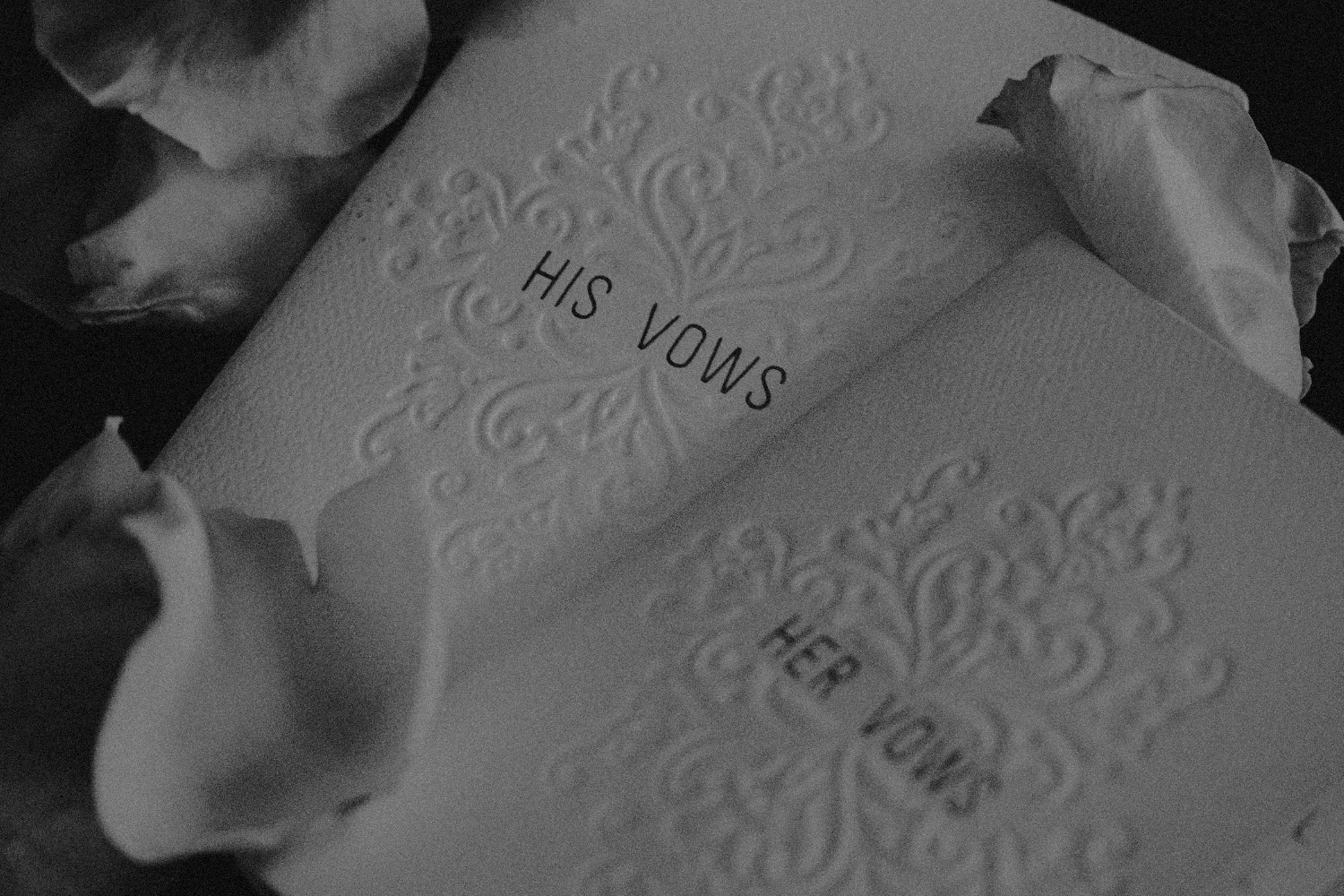
Tips on Writing Your Own Wedding Vows
Text by Angel Onu-Njoku
There is nothing wrong with saying traditional vows, (I did it!), but some couples might want to be more romantic and prepare their own vows.
Writing your own vow is pouring out your heart to the one you love and want to spend the rest of your life with and it'll be worth it when you're up at that altar.
Here are tips to guide you
Deciding to write
Deciding to write your own vow is something that shouldn’t be taken likely; you have to be a 100 % sure. You need to talk to your partner about it, you both have to be equally committed to the idea if not it wouldn’t turn out great. If you both agree to write your vows, do you want to write it together or separately? Will you show it to each other or would it be secret to be revealed at the altar?
Structure and Research
Finding a structure that works for you may require some deep research, but don’t be afraid to mix and match.
Use words like;
I promise __.
I will __.
I do __.
I promise to love, respect, and trust you, and give you the best of myself, for I know that together we will build a life far better than either of us could imagine alone.
To start your research, read traditional vows — from your own religion, if you practice a certain faith, and also from others as well, along with secular wedding vows, see what interests you the most. You can incorporate these into what you write, or use them as a guide. Getting ideas from other sources isn’t such a bad idea! Borrow freely from poetry, books, even movies or video games. Take note of words and phrases that capture your feelings. “Plagiarism is both allowed and encouraged. Truth is, most vows are plagiarism since we’re hoping to steal some wisdom from people that have gone before us”.
Think about your relationship
Take some time, both separately and together, to think about what you love about each other and what makes your relationship special. Write down the most memorable moments you have shared together, good or bad. Reflect on the promises you want to make to your partner and the ones you don’t.
- Why did you decide to get married?
- What hard times have you gone through together?
- What have you supported each other through?
- What challenges do you envision in your future?
- What do you want to accomplish together?
- What makes your relationship tick?
- What did you think when you first saw your fiancé?
- When did you realize you were in love?
- What do you most respect about your partner?
- How has your life gotten better since meeting your mate?
- What about them inspires you?
- What do you miss most about them when you're apart?
- What qualities do you most admire in one another?
Write it out early and shorten your vows to one to two minutes, max.
Don’t leave writing your vows until the day before the wedding. Give them the time and thought they deserve, and save your future self the stress of trying to be super thoughtful—most likely, you’ll be in a million different places on the eve of your wedding, which is not the proper brain space.
Your vows are important, but it shouldn’t be lengthy. Pick the most important points and make them clear. If yours is going longer than two minutes, edit it. Put some of the more personal thoughts in a letter or gift to your fiancé on the eve or morning of your wedding.
Practice!
Memorizing is an option, practising is not. It might be awkward but practice looking up while you read your wedding vows, so you can actually look at your partner as you the words. It’s common to mumble or speak softly when reading, so practice your vows to make sure your family and friends will hear you. These are words that are meant to be heard by an audience, so check how they sound when spoken. Read your wedding vows out loud to make sure they flow effortlessly and watch out for tongue twisters and long sentences.
.